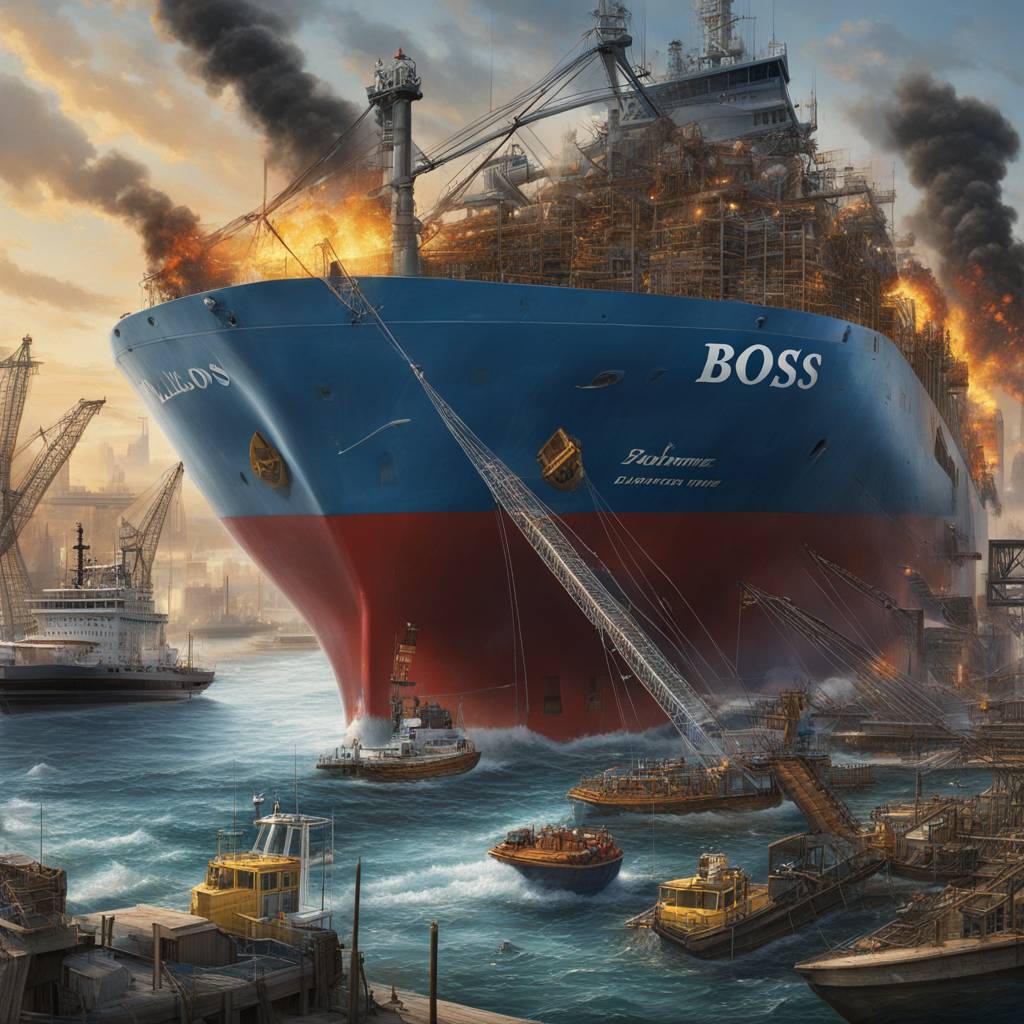The collapse of a major bridge in Baltimore, resulting in the presumed deaths of six people, could lead to the largest marine insurance payout ever, according to the chair of Lloyd’s of London. Analysts estimate insured losses from the disaster to be in the single-digit billions, with potential impacts on various insurance policies such as marine liability, hull, property, cargo, and business interruption. The complexity of the situation will take time to unravel, with second-order effects such as disrupted supply chains likely to be substantial.
Baltimore is a significant port in the U.S., serving as a hub for the import and export of autos and light trucks. Supply chain operators are working to minimize the impact on trade as the port remains blocked. Morningstar DBRS analysts predict insured losses between $2 billion and $4 billion, depending on the duration of the port closure. Insurance claims may involve a diverse pool of insurers and reinsurers, but are expected to remain manageable despite the hefty losses.
The Singapore-flagged container vessel involved in the incident was chartered by Maersk and operated by Synergy Group. Reports suggest the ship lost power before hitting the bridge, prompting investigations by authorities in both Singapore and the U.S. to determine legal liability. Maersk likely had liability cover as the charterer of the vessel, rather than as the operator. The insurance industry faces potential claims ranging from $1 billion to $3 billion, with various policies set to be triggered.
The impact of the bridge collapse on global auto firms is being assessed, with companies like BMW, Mercedes, and Volkswagen expecting to reroute trade and extend delivery times. German automakers may be particularly affected, as European imports account for a significant portion of U.S. sales. While some disruptions in auto imports and exports are anticipated, industry experts are confident in the ability of ports such as Brunswick, Georgia, to accommodate additional traffic until the Port of Baltimore reopens. The incident is not expected to have a major impact on material supplies for U.S. plants.
Other goods such as sugar and gypsum, as well as products from retailers like Home Depot, Ikea, and Amazon, are also handled at the Port of Baltimore. Plans are already in place to divert and accommodate traffic at other east coast ports such as Philadelphia, Norfolk, Savannah, and Charleston. While the port may suffer in the short term, alternative shipping options are being explored to minimize disruptions and ensure the continued flow of goods. Investigations into the incident and the resulting insurance claims are expected to unfold over the coming months or even years.


